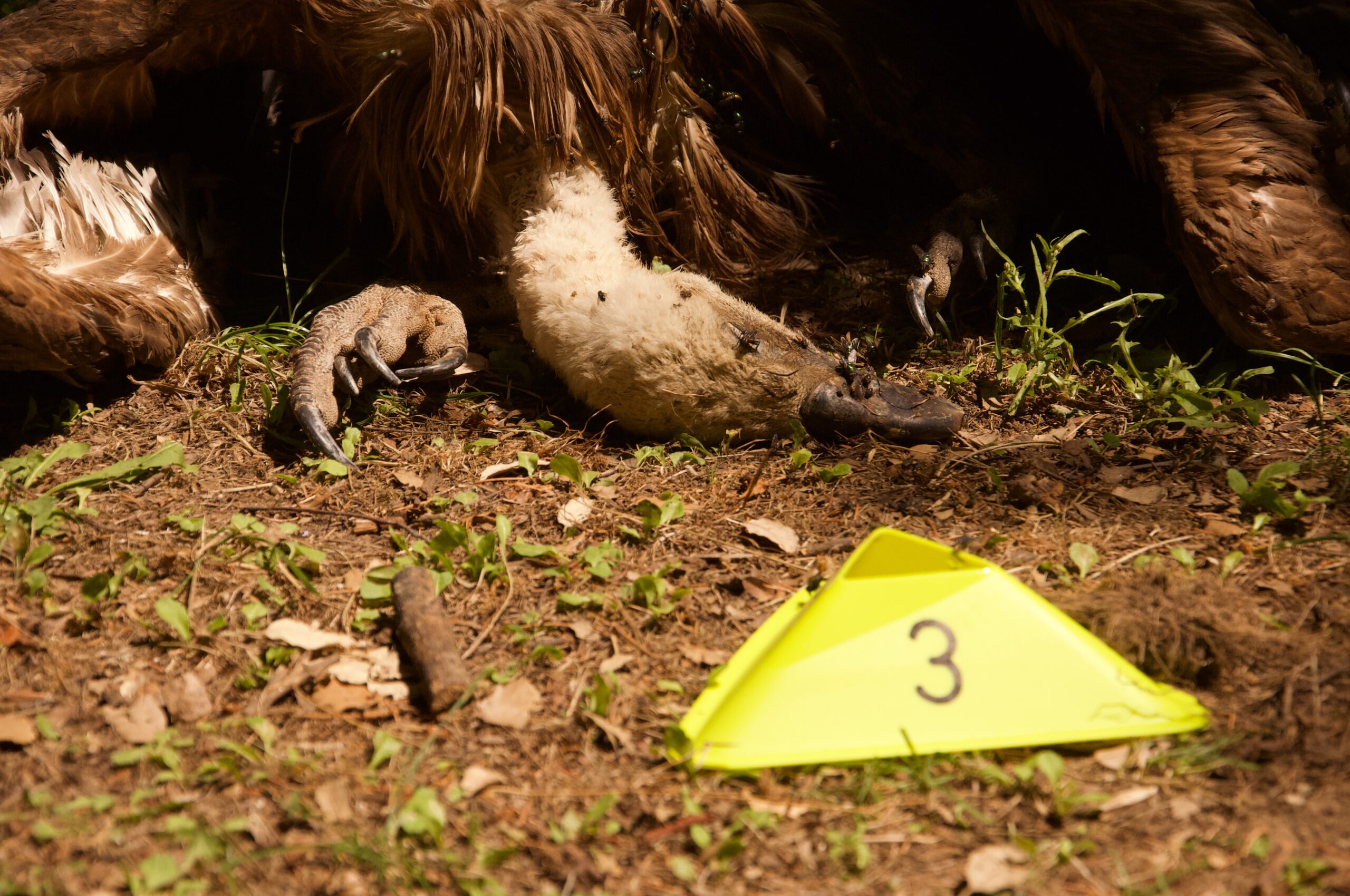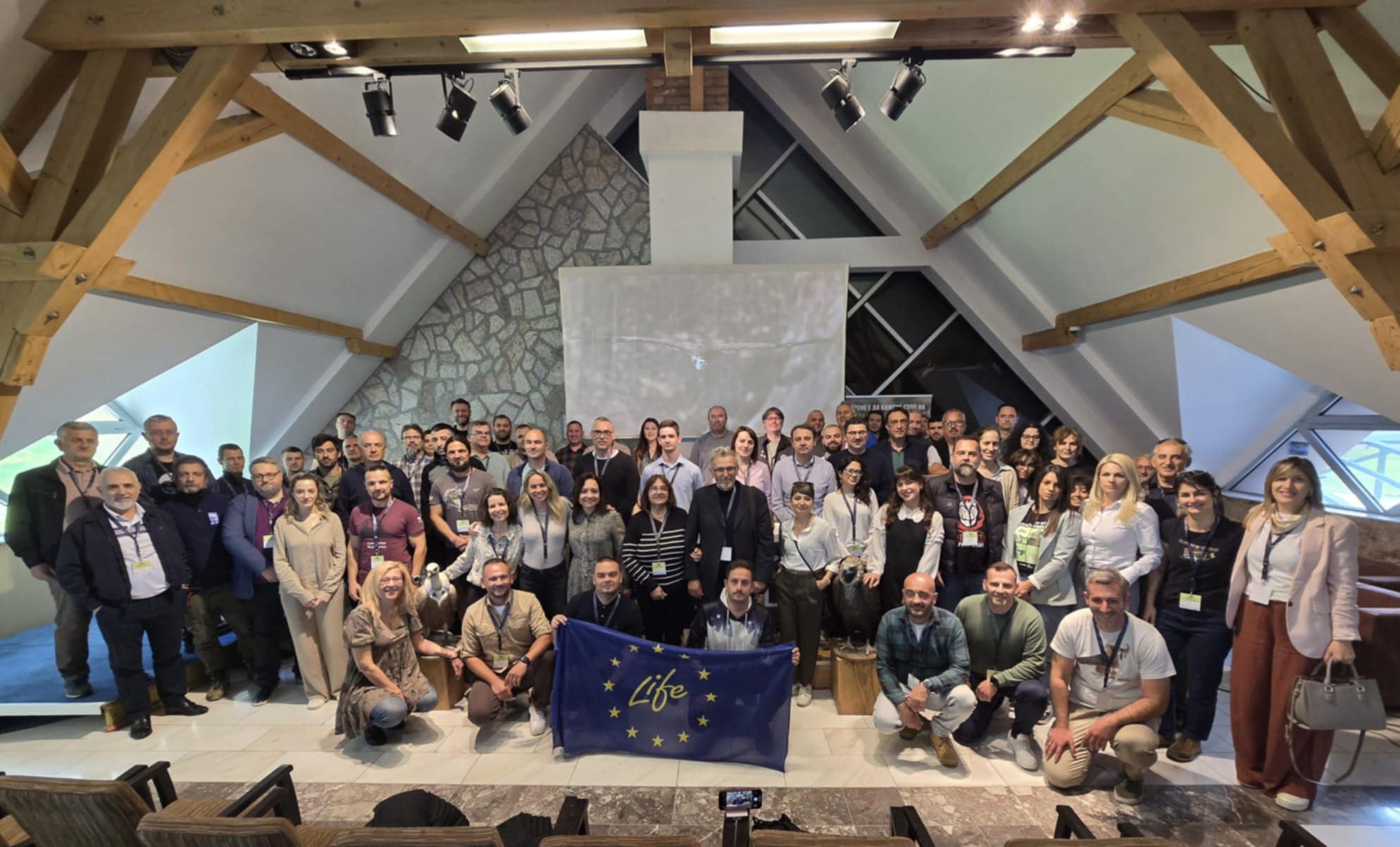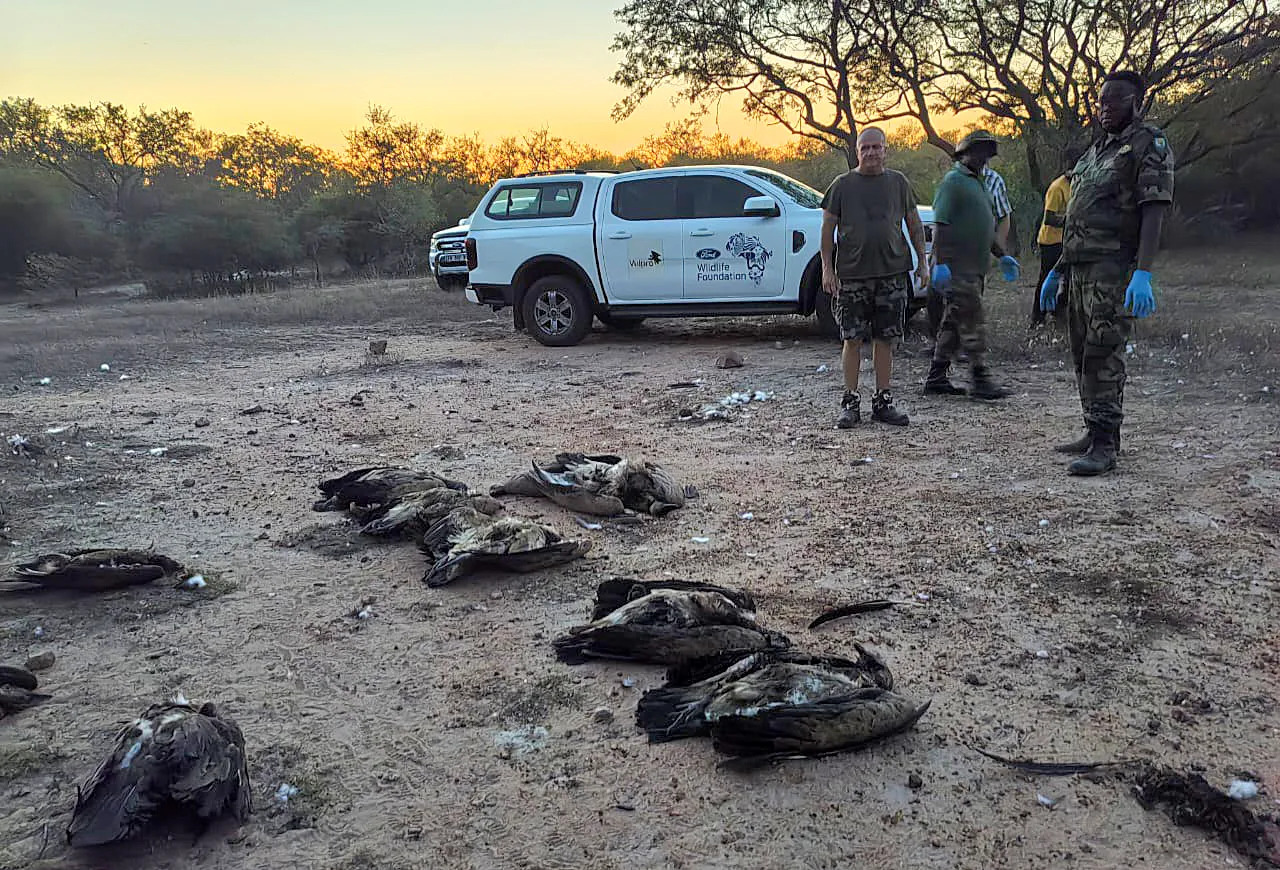
Another 50 dead Hooded Vultures (Necrosyrtes monachus) have been reported at the end of January in Guinea-Bissau, exactly one year after more than 2000 vultures were found poisoned in a series of events in this west African country, which was the biggest ever vulture poisoning incident registered anywhere in the world, causing a devastating blow to the conservation of a species that is threatened with extinction in Africa.
Recent deaths of Hooded Vultures
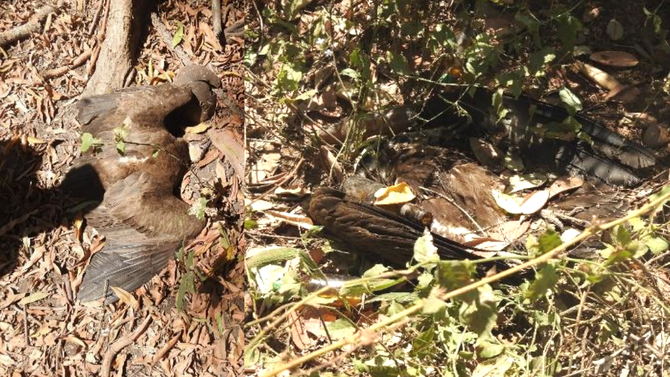
The vultures now found dead were reported from the Caio district, quite far from the previous poisonings in 2020. This time, local authorities and staff from Guinea-Bissau’s leading conservation organization ODZH were quick on the scene and investigated the latest incidents. They found that, unlike in 2020, these dead Hooded Vultures had all their parts intact. The area where this latest vulture mortality occurred does not have a history of usage of vulture parts in traditional medicine, so this time the mortality seems not to be linked with the trade of vulture body parts, which has been the main driver of last year’s dramatic mass mortality. From the photos taken on site, the vultures appeared to have died of poisoning, but this will need to be confirmed by subsequent toxicological analysis. Local staff collected two vulture carcasses, now kept frozen in the capital Bissau, and buried and incinerated all the remaining dead vultures to prevent any potential poison from spreading further in the environment.
Largest mass vulture poisoning mortality
Last year Guinea-Bissau became a vulture graveyard when a minimum of 2000 Hooded Vultures were found dead in the Eastern sectors of the country in Bambadinca, Bafatá and Gabú. Guinea-Bissau holds one of the healthiest populations of this African species, with some estimates suggesting the country holds more than a fifth of the continents’ global population of Hooded Vultures, but events of this scale will have adverse effects on their national but also regional west African population.

Despite the COVID-19 pandemic and the political turmoil then engulfing the country, the authorities in Guinea-Bissau were quite responsive last year. In March-April 2020, they managed to organize field missions that collected plenty of evidence that the vultures had been killed deliberately using poisoned baits. Reports from witnesses corroborated that vultures were poisoned intentionally, using poison baits placed around villages to collect vulture parts for belief-based use (ritual use). Communities in some parts of Africa believe that possession of vulture heads brings good fortune or even special powers. The Guinea-Bissau police subsequently started an investigation, but this did not progress much.
With our support at the Vulture Conservation Foundation (VCF), some vulture carcasses were sent to Lisbon last year, with one of the last planes that flew out of Guinea-Bissau before the global lock-down imposed by the COVID-19 pandemic started. Toxicological analysis done at the University of Lisbon revealed that the vultures had been poisoned with methiocarb, a powerful insecticide often sold under the commercial name of Mesurol, which is used to control, among others, snails, and that has been recently banned in Europe due to its toxicity to wildlife.
Mass poisonings in Africa are a common problem
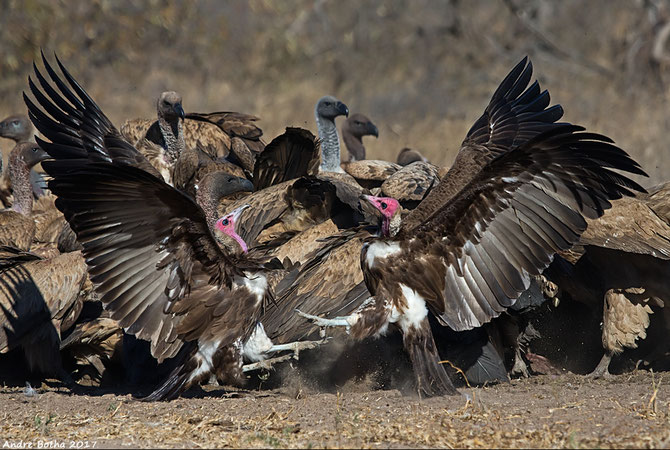
Unfortunately, mass poisonings of vultures in Africa are successive and frequent, driving several species of African vultures to extinction. In the past 30 years, some African species have declined by 80%. Seven of Africa’s vulture species are now on the edge of extinction, with four species considered Critically Endangered, while the three other species are Endangered. This, of course, causes a devastating effect on the vulture populations and the surrounding environment, as vultures are essential for a healthy and functioning ecosystem and poison baits kill a lot of other scavenging wildlife.
Poisoning does not only pose a threat to vultures in Africa — it is a global problem also affecting other wildlife and public health. The Vulture Multi-species Action Plan, co-developed by the VCF, and endorsed by the Convention for Migratory Species (CMS), concludes that poison is the biggest threat to vultures worldwide, and a significant part of this global action plan for vultures focuses on the actions needed to fight this threat.
The VCF has been supporting the government of Guinea-Bissau and is planning to co-organize with the IUCN’s Vulture Specialist Group (VSG) and South Africa’s Endangered Wildlife Trust a training mission to the country once global travel restrictions are lifted to progress vulture conservation and the fight against poisoning in the country.



